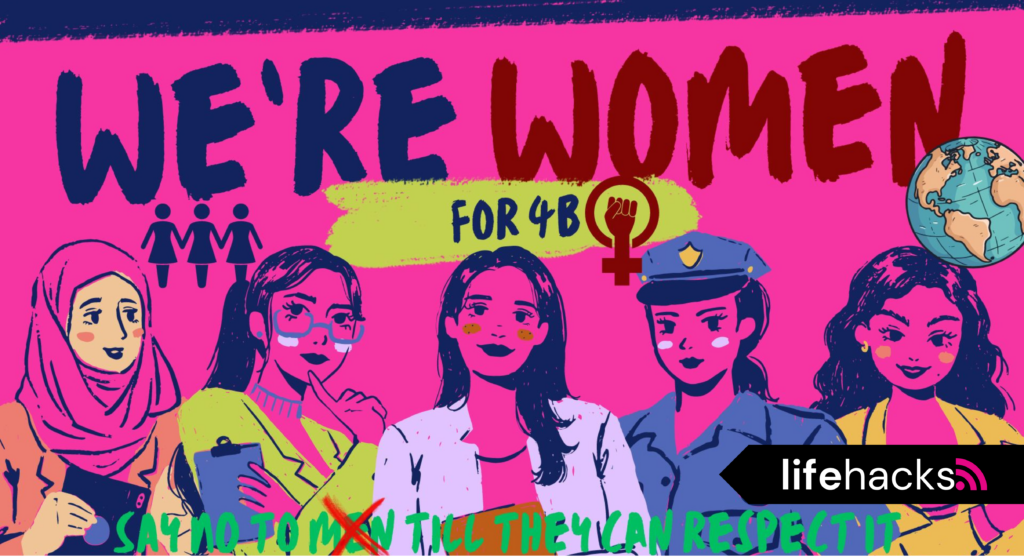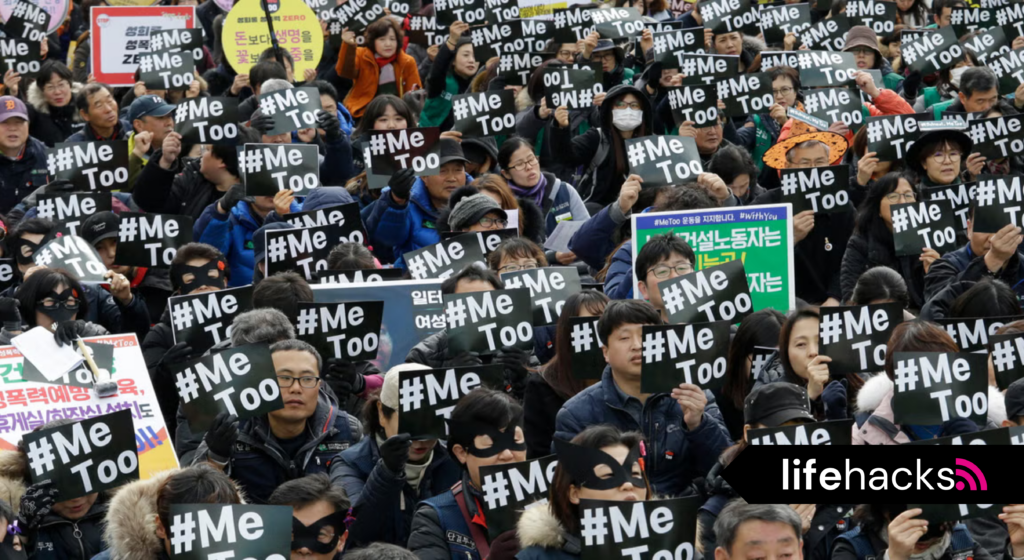A new feminist movement called the 4B movement has taken hold in South Korea, igniting a fresh debate on gender equality. This movement, often described as revolutionary, promotes the “Four Nos”: no dating, no marriage, no sex, and no childbirth. While South Korea has long faced issues around gender inequality, the 4B movement has come as a bold response to societal pressures, reshaping the roles of women and challenging traditional expectations. Recently, it’s garnered global attention, especially after political shifts in the U.S., with many around the world curious about what this movement means and how it has evolved to become such a powerful force.

Table of Contents
ToggleWhat is the 4B Movement?
The term 4B movement originates from the Korean phrase “Four Nos,” with each “B” representing a lifestyle choice that rejects traditional gender norms. Specifically, the 4B movement advocates for women to say no to dating, marriage, sexual relationships, and childbirth.
The name of this South Korean movement is a modern version of the feminist movement as young women, tired of the increased gender discrimination at workplaces, unite to refuse to follow stereotypical female roles. Dependent on cultural expectations of women not only in Asia but across the world, the message of the 4B movement is revolutionary – women are being told to leave the traditional ideas of marriage and childbearing behind and put career first. The movement is also not an isolation but is part of growing trend in South Korean feminism which is becoming more militant in its approach. With the emergence of #MeToo movement, protests against misogyner, women in South Korea have stepped forward for themselves and have asked for better treatment.
Why Did the 4B Movement Start?
The 4B movement emerged due to the continuous high demand of gender quotas, marital status and stereotypes that most affected females did not embrace. Women in the Republic of Korea continue to experience major problems such as disparity in their wages and limited job opportunities and cultural dominance in the society supported by bias that enjoys the family and working places. Such pressures have reduced many women to feel useless or unimportant members of society.

In parallel, there was growing sensibility and frustration with “gapjil,” a word literally used in Korea for abusive or highhanded actions from superior offices. Leading an unfulfilling life women finally fed up with the kind of treatment and dominance see the 4B movement as a way out of these trouble by opting out of the norm. This is not because they are more interested in marriage and having children but in having their goals, getting an education and acquiring careers.
The Four Nos: What Each Means for South Korean Women
| Four Nos | Description |
|---|---|
| No Dating | By avoiding dating, women are seeking to escape the pressures and power dynamics they feel have long favored men. For many, dating in Korea can involve expectations of female submission and deference, with little support for women’s independence or personal goals. |
| No Marriage | Marriage in South Korea has traditionally placed significant responsibilities on women, from managing the home to raising children. The 4B movement encourages women to reject this framework, avoiding marriage in favor of pursuing individual ambitions. |
| No Sex | Many women in the movement view abstaining from sexual relationships as a way to protest against societal expectations around sexuality and the pressures they feel to look or behave a certain way to attract men. |
| No Childbirth | The decision not to have children is perhaps the most radical of the Four Nos, as it directly challenges South Korea’s societal structure, which relies on stable birth rates for its future. Women who support the 4B movement often feel that the current system does not support them in balancing work and family life. |
Global Attention Following the U.S. Election
The 4B movement has recently gained attention from the world as women issues remain increasingly popular globally, especially after the changes in the U.S. political situation. As the presidential campaign turned its attention to gender rights and equal opportunities, several started paying attention to organizations such as South Korea’s 4B to the global feminist revolution. Indeed, some of the cultures incorporated in the 4B movement are found in other countries whereby wom?n are equally emerging from the domu of social set traditions. Similar phenomena have also been noted in Japan and whereas the 4B movement Japan seems to mimic that of South Korea’s in its having its own quickly emerging ‘marriage strike’ trends among young brides.
The Impact of the 4B Movement on South Korea’s Birth Rate
The effect of the 4B movement to South Korea’s birth rate has been massive since more women are now preferring to have jobs rather than have children. South Korea is witnessing one of the lowest birth rates globally, and as more women do not want to return to being homemakers after raising a family, the numbers are only set to decline. Concerns of economists and policymakers for this decline are due to a decrease in labor force and increasing burden on population of the aged in the country. But the women of the 4B movement quickly counter by pointing out that they are only acting in ways that are reciprocal to the treatment they are getting from a society that does not offer them reasonable support.
Criticism and Controversy Surrounding the 4B Movement
It must be noted, however, that the direction of the 4B movement has not launched itself wholly to the appreciation of great support or approval. That some people consider it extreme: they state that such attitude may eventually result in the escalation of conflict between the sexes, and may be detrimental to generations yet unborn. Other people cannot understand why activists do not engage in policy change instead of boycotting relationships in order to gain equal rights. However, adherents of radicalism state that their work is to raise awareness of problems that have been left unsolved for a long time.
Has the 4B Movement come for Good?
Also Recommeded Read : South Korean author Han Kang wins the 2024 Nobel prize in literature
Summary
The 4B movement in South Korea is one of the most radical modern movements for women’s rights which has its own vision of how to fight against gender stereotyped expectations in relationships. On this subject of women and the future of discussions around gender worldwide, this movement is a success story that is also contentious. Some may consider this as radical, while others will pitched the message as provocative and well-earned towards attaining change on gender parity. The movement of 4B for change has already brought a paradigm shift to the idea of women’s rights around the world, including South Korea, and this means that the appeal for equality knows no limits.